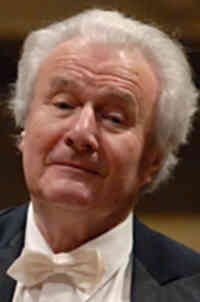There is a school of thought holding that Tristan is so overwhelming musically that it doesn’t need a production at all. Not, alas, so, and it is not only memories of the ex- traordinary first night of Peter Hall’s still- mourned staging at Covent Garden just ten years ago that give this theory the lie; there have been more recent casualties. The cur- rent state of that production is — to put it as kindly as possible — fashionably minimalist, but at least it doesn’t get in the way of some remarkable individual perfor- mances, one of which is reason enough for catching this revival.
I refer, of course, to John Vickers’s Tristan, one of the outstanding operatic in- terpretations of the post-war era, almost in spite of itself. Maybe there are moral, per- sonal reasons for a certain air of perfunc- toriness in parts of the first two acts. `Wo sind wir’ he sings in Act One, and the ques- tion is quite literal: he is seeking a report from the the ship’s navigation officer, not posing a metaphysical query. In the second act there is something almost sheepish about his wooing of Isolde until the love- duet proper starts. But from the entry of Mark onwards the impersonation blossoms incontrovertibly into greatness. If any other tenor did what he does in the third act you would accuse him of hamminess, but Vickers patently feels and believes in every word and note, and the sense of mental and physical agony is actually frightening: it is almost a relief when Tristan dies, though given the extraordinary degree of personal identification between singer and role, it shouldn’t be. Worrying.
Gwyneth Jones (Isolde, her first in Lon- don) has not sung so well here since, I think, her Salome of 1974. True, there were still some squally high notes, some ungainly gasps for breath in the middle of sentences, some passages innocent of verbal defini- tion, but far less of them than usual. The beauty of her tone when not under pressure and the sensitivity of her phrasing were ex- tremely satisfying. And of course she look- ed glorious in John Bury’s Burne-Jones costumes. Otherwise, with an off-form Brangaene and Kurwenal, vocal honours were stolen by Gwynne Howell: I know of no other bass who makes this music sound so beautiful and so dramatic. Colin Davis’s lithe, passionate conducting was so finely controlled that those singers who chose to enunciate the words (the majority, just) were always audible.
Rodney Milnes | 21 MAY 1982




